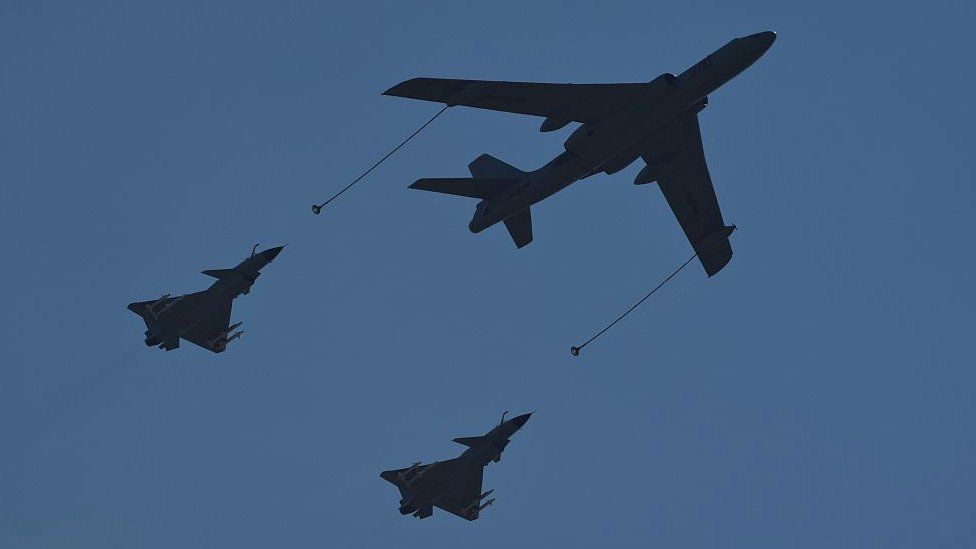
This article is more than
3 year old
Speaking in Japan, he appeared to contradict long-standing US policy in the region, although the White House insisted there had been no departure.
Mr Biden drew a parallel between Taiwan and Russia's invasion of Ukraine, prompting an angry rebuke from Beijing.
He is on his first tour of Asia as US president, visiting regional allies.
China regards Taiwan as a breakaway province that must be re-unified with the mainland.
Mr Biden was answering questions in Tokyo during a press conference with Japanese PM Fumio Kishida, when a journalist asked them about the defence of Taiwan.
The US president began by directly linking the China-Taiwan situation to Russia's invasion of Ukraine, saying that Vladimir Putin was attempting to "eliminate the identity of Ukraine".
If there was a rapprochement eventually between Ukraine and Russia, and sanctions were not sustained, "then what does this signal to China about the cost of attempting to take Taiwan by force?"
"They are already flirting with danger right now by flying so close and all the manoeuvres that they are undertaking," he said, referring to increasing reports of Chinese warplane incursions into Taiwan's self-declared air defence zone.
He added that while "my expectation is that it [a Chinese invasion] will not happen, it will not be attempted", at the same time it depended on "how strong the world makes clear that that kind of action is going to result in long term disapprobation".

He was then asked directly if the US would defend Taiwan militarily if China invaded, when it has not done so in the invasion of Ukraine, and he responded: "Yes... that's the commitment we made."
"The idea that it can be taken by force... is just not appropriate. It will dislocate the entire region and be another action similar to what happened in Ukraine."
But Mr Biden also prefaced his remarks saying US policy toward Taiwan "has not changed", which a White House spokesman swiftly reiterated.
The remarks in Tokyo were the second time in recent months Mr Biden has unequivocally stated the US would defend Taiwan if China attacked, in what has been seen as a change in tone.
The US pursues a policy known as "strategic ambiguity" on the China-Taiwan issue, and previously has been vague on what it would do in such a situation.
It is constantly walking a diplomatic tightrope due to commitments to both China and Taiwan.
It has no official diplomatic ties with Taiwan, but sells arms to it as part of its Taiwan Relations Act, which states that the US must provide the island with the means to defend itself.
At the same time, it maintains formal ties with China and also diplomatically acknowledges China's position that there is only one Chinese government, which is known as the One China policy.
Mr Biden on Monday stressed that the US still supports this policy.
China's foreign ministry spokesman Wang Wenbin insisted "Taiwan is an inalienable part of China's territory" and there was no room for compromise.
"The Taiwan question and the Ukraine issue are fundamentally different. To compare those two is absurd. We once again urge the US to abide by the One China principle."